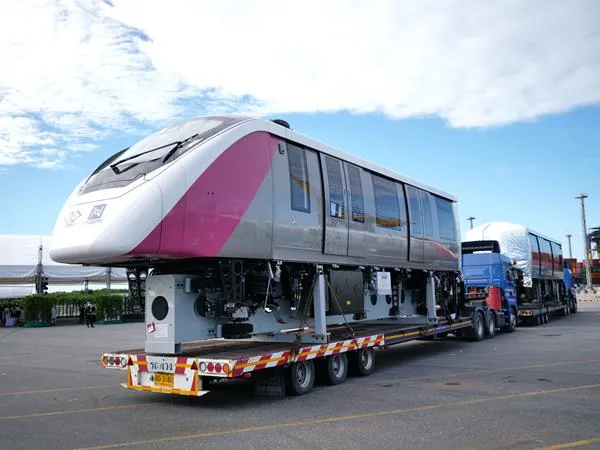
Bombardier Transportation has delivered monorails for Bangkok's Metropolitan Rapid Transit (MRT) Pink and Yellow Lines, which will provide 64km of transportation links across Thailand's capital.
The rail technology company says its Innovia 300 monorails will be able to run at speeds of up to 80km/h and with a maximum system capacity of more than 28,000 passengers per hour in each direction.
Bombardier’s scope on the 34.2km Pink and 30.4km Yellow Lines comprises 72 four-car Innovia monorail 300 trains, wayside systems and the automated Bombardier Cityflo 650 rail control and system integration.
Bombardier’s Bangkok Engineering Centre is delivering the system with vehicles manufactured by the CRRC Puzhen Bombardier Transportation Systems joint venture.
This is part of an agreement with railway rolling stock manufacturer CRRC Nanjing Puzhen which specialises in the manufacturing and selling of automated people mover (APM) and monorail vehicle and systems.
In a separate move, Bombardier is delivering its Innovia APM 300 system for Thailand's driverless mass transit system, the Gold Line. It is also the signalling supplier for the Bangkok Skytrain and MRT Purple Line and a section of the State Railway of Thailand’s Northern Line upgrade.









